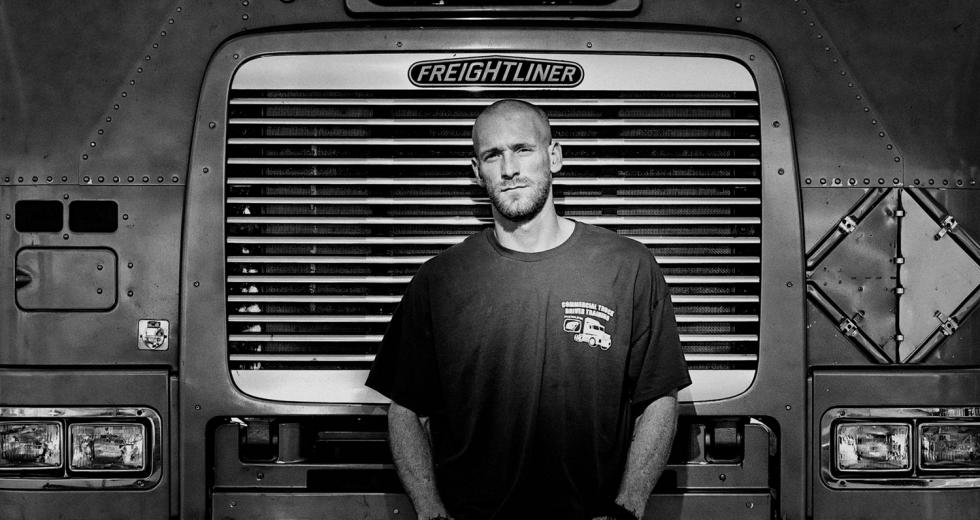The courts found his crimes so shockingly brutal that, in 1995, he became the first juvenile under 16 to be tried as an adult in Sacramento.
“There isn’t a day that goes by that I don’t regret my actions that night,” Self says.
He spent 14 years in various California prisons before his release two years ago.
Now 31, he has a chance to make something good of his life thanks to California Emergency Foodlink’s Truck Driving School. Having completed the 18-week program, Self has a class A driver’s license and a full-time job with Hydra Trucking and Warehousing in Sacramento.
“It gives me something to work for instead of trying to take for everything,” he says. “It gives me a new outlook on life. At the end of the day, I get a good paycheck and know that I’ve actually earned it. I’m happy with that. I’m happy with the direction my life has taken; I don’t have to worry about prison because that’s all behind me.”
After his incarceration ended, Self worked as a seasonal hay baler with no prospects for long-term employment. His brother-in-law, who was finishing up at the truck driving school, urged Self to enroll.
“I wanted to be an electrician, but nobody would touch me because of my felonious background,” Self says. “So once my season came to an end, I decided to go through the school. It was one of the best choices I’ve ever made. … They opened doors I didn’t know existed.”
Foodlink’s Truck Driving School opened in 1998. “They were trying to think of a way to help people stand on their own feet,” says Brenda Coker, vice president of training. “We already do trucking for our business of distributing food. It’s a livable wage, and there’s always a big demand for truck drivers. It gives people something they can continue and support themselves with. Students help us get food out to people who need it, and in exchange for that, we teach them to get their class A license. They don’t have to pay a $3,000 or $4,000 tuition fee.”
Students spend six weeks in the classroom and another six weeks working in Foodlink’s warehouse and driving Bobtails. During the final six weeks of school, they get behind the wheel of the agency’s tractor-trailers and make deliveries to food banks throughout Northern California. Then they’re free to go out and find a job.
“Foodlink offered me a future I didn’t know I had,” Self says.
Recommended For You

Living With Intention
New Opportunities for a life of sobriety
John Lewis Sullivan was addicted to drugs at age 13, stealing to support his habit and generally making mischief of varying degrees. He’s since spent 18 of his 42 years in jail or in California’s prison system.

Stronger Than Steroids
One family's battle with performance-enhancing drugs
Efrain Marrero’s friends and family described him as caring and gentle. Never a troublemaker or much of a risk taker, it came as a shock to the community when the 19-year-old college athlete was found dead in his family’s home.



